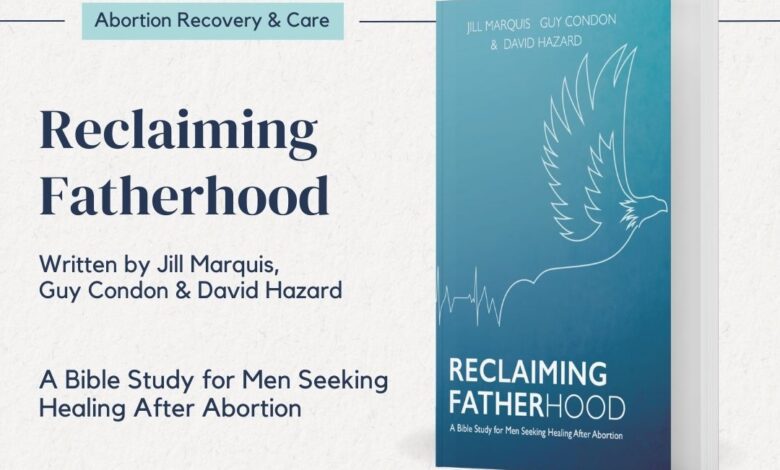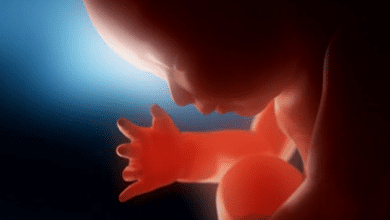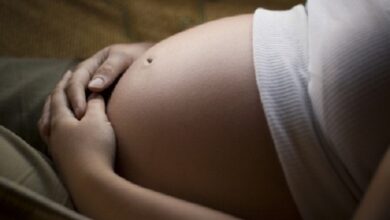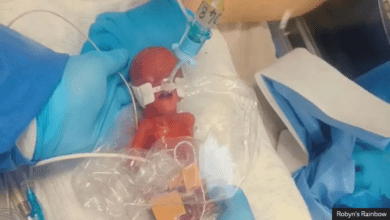A Bible Study for Men Seeking Healing for Abortion

A focus group of men willing to share their abortion stories and journey together to find God’s grace and restoration enhanced the new edition of a book published by Care Net more than 20 years ago.
Reclaiming Fatherhood: A Bible Study for Men Seeking Healing for Abortion, released in March, was edited by Jill Marquis, the Director of Abortion Recovery and Care for Care Net. The book provides a road map to healing for men struggling with the emotional and spiritual effects of abortion.
The first edition was written by Guy Condon and David Hazard and published in 2001 under the title Aborted paternity. Condon served as president of Care Net for seven years before his death in a car accident in 2000. Condon, 46, was driving home from a pro-life event when his car was broadsided by another car Hazard is the founder of ASCENT, an international coaching program for authors.
Reclaiming Fatherhood paying tribute to the legacy of Condon and Hazard.
“Their work has given voice to countless men who have suffered in silence after aborting their children,” reads one of the book’s acknowledgments.
As a ministry that aims to promote a Pro Abundant Life movement, Care Net is committed to helping both women and men heal from the pain of abortion. This summer, at its national conference, Care Net released the Forgiven And Set Free study guide for women.
While the postabortion trauma suffered by women is becoming widely known, very few books, if any, address the emotional devastation of men involved in aborting a child. Additionally, few men are willing to talk about the issue.
“Our ultimate goal is for men to have a personal relationship with Jesus Christ, and be healed from their abortion wounds so they can take their place as the men God designed them to be,” Marquis said. “Abortion advocates have long been effective at silencing men’s voices on this issue (‘my body, my choice’). That’s disingenuous and intellectually dishonest – many men are deeply affected by the abortion decision and the trauma can color their judgment in every area of their lives.”
Marquis hopes that the revised edition of Reclaiming Fatherhood will help men find healing and grace. Leading a focus group of four men who went through a Bible study helped him gain invaluable insight; Her emotional and spiritual recovery from a previous abortion also gave her a unique perspective for interacting with men who share her experience.
“The way men and women experience and process abortion is very different,” Marquis said.
One of the main differences—evident in the focus group of the four men—was the presence of underlying anger.
“What I heard from each of these gentlemen was a profound sadness. Abortion stole their voice, their manhood, their leadership, and their children. Each man said he did not know how deep the his injuries, there’s just something wrong,” Marquis said.
“Abortion, ultimately, is a selfish decision. When you stop looking inward and start looking upward, that’s when you start to see the generational change that begins to happen.”
Although he knows that participating in an abortion can weaken men, Marquis is also filled with hope when he realizes how God’s grace can transform them and how His strength can perfect their weakness (2 Cor. 12:9).
Studying and applying key passages in the Bible is an important part of Reclaiming Fatherhood. Each chapter includes a series of thought-provoking and thought-provoking questions to help small group participants get to the root of the issue and view it through a biblical lens.
Chapter titles include: “How Do You Feel?” “God of Our Deepest Needs” “Maker of Our Souls” “Saved from the Enemy” “New Roads” and “A Plan for the Long Moon.”
The final chapter, “Men After God’s Own Heart,” uses examples like King David and the Prodigal Son to exemplify rebellion, repentance, repentance, and redemption:
As men who have experienced an abortion, whether voluntary or not, the damage has been done and our lives have been damaged. But, as we walk this journey of healing, we see God’s fingerprints on our lives. We are no longer fugitives running from our past, but free people running towards the Lord.
We face the losses we have caused and the losses we have suffered as a result of abortion and put them before the Lord… We admit that the sin in our lives can only be atoned for by the blood of Christ, at the feet of the cross Here, we laid down our souls and asked the Lord for forgiveness.
The final chapter concludes with personal testimony from the four men in the focus group and a nod to their courage. “Telling their story is not an easy step for any of these men to take. But they all did it for two reasons: to be obedient to God, and to prayerfully help other people on their healing journey.”





